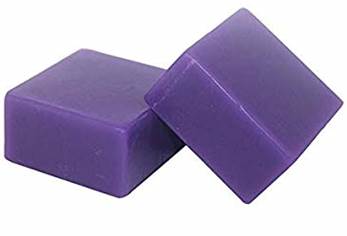
Soap

Many soaps contain palm oil "... one of the most widely used oils ... [It] only grows in tropical regions which is why rain forests are leveled in order to grow it. Palm oil plantations now take up 27 million hectares of land — an area the size of New Zealand." Read the full article.
Many vegetable-based soaps are available now which are more kind to the environment, plant and animal life.
Check if the soap you are using has palm oil (usually labelled sodium palmate) as an ingredient, and check if the palm oil is sourced from a sustainable plantation which adheres to Round Table on Sustainable Palm Oil standards.
Reduce the use of motel and hotel soaps by taking your own when travelling.
Try making your own soap.
Place a soap scrap in a bathroom scrubbing mitten or washcloth and use in the shower.
Collect left over soap-ends and make into a new bar of soap. Simply place the pieces of soap in a bowl and add water. When the soap softens, pack them tightly into a mould and let it dry. There are many tutorials online.
Make soap scraps into "clean mud" for kids as a great indoor activity. Unravel a roll of toilet paper, gather the toilet paper together and add 1 cup of diced soap pieces and some water. Mix together with your hands to make "clean mud".
There are a number of soap recycling programmes in New Zealand to which motels and hotels can subscribe, including:
- Soap Aid which works with Rotary International to recycle soaps from hotels to send to overseas countries in need.
- HealthPak has a Back to Base soap recycling programme for its own vegetable-based soap products.
Please consider reusing before disposing to landfill.